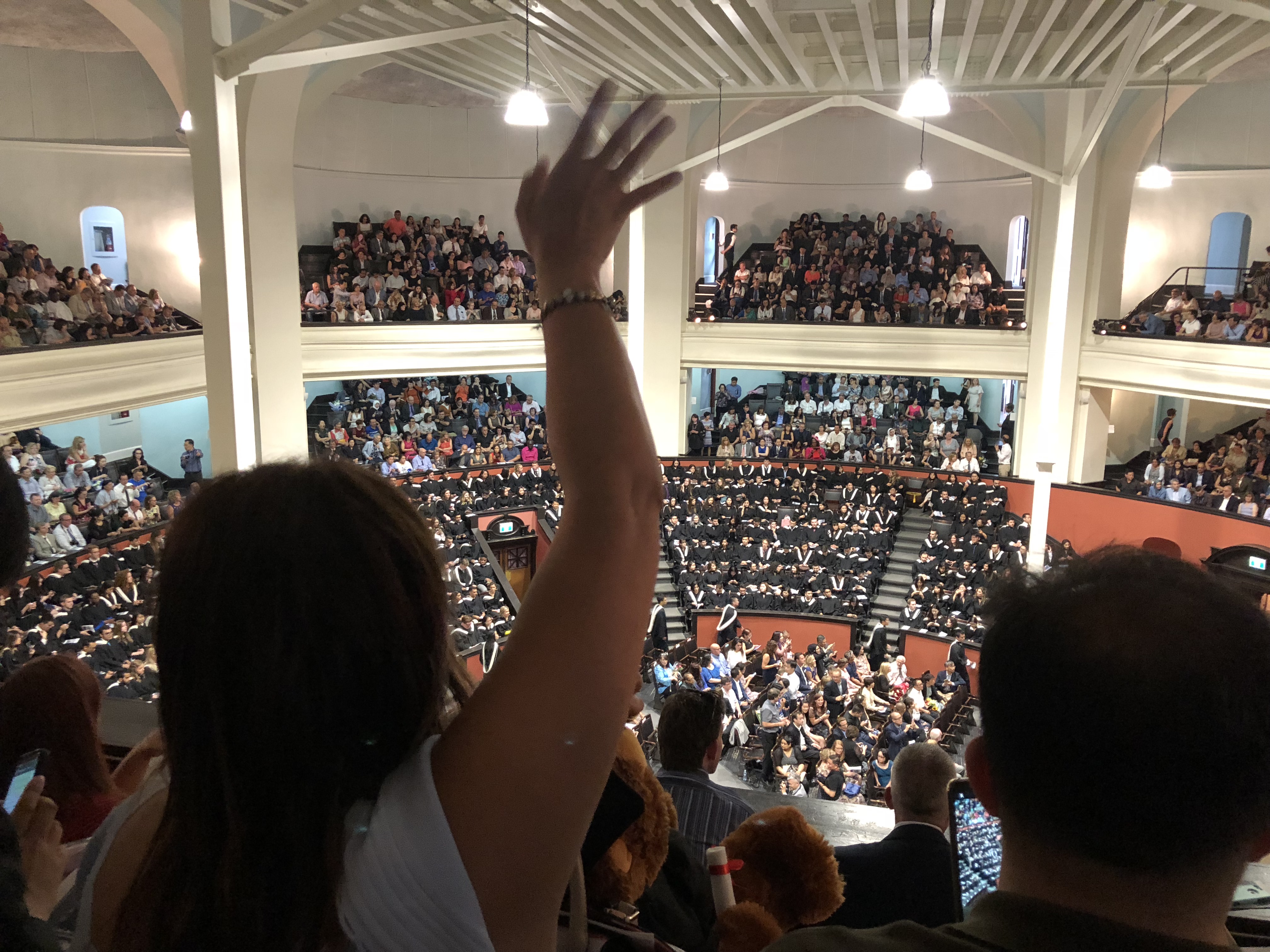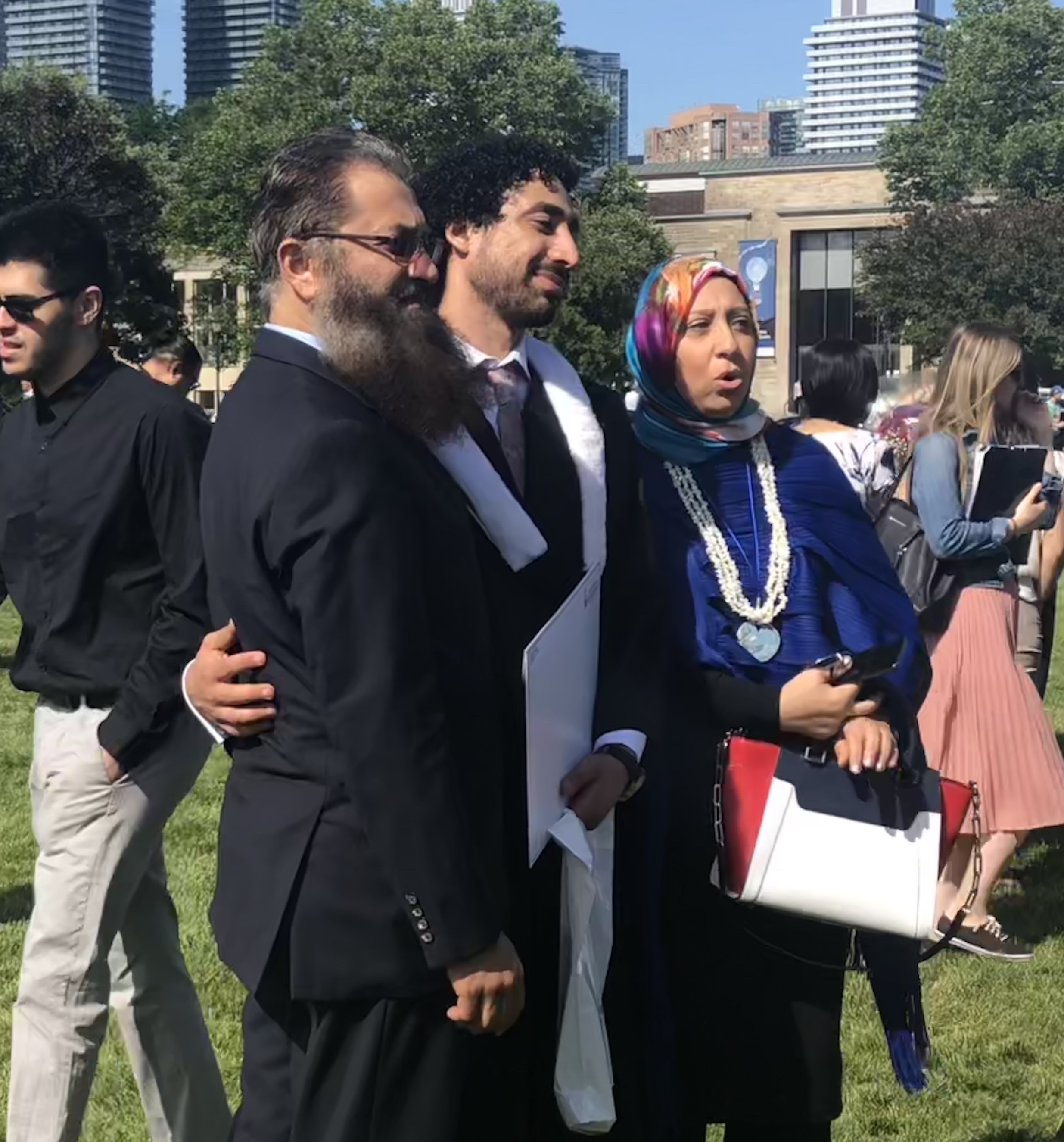The children shuffle in, although to call them children is a stretch. Most of them are aged 21 or 22, therefore majority age, therefore adults. Some are 23 or 24 – there have been interruptions in their schooling, they have things to do in their lives, construction jobs or care-taking or they returned to their countries and were detained at the border.
Although they are adults, they are also, always children. They are children because there are adults, a particular unit of adults, who will always consider them children, their children. They had given birth to them, or adopted them and kept them in sandwiches and Nikes, in doctors’ offices and karate classes, for some 16, 18, 20-some years.
When these pairs – parents/children or adults/children or adults/adults – are separated, there is sadness, sometimes anguish that might be weighted more heavily one way or the other. When they are reunited, you can hear the elastic snap, a sense of rightness, pride and relief at the return. There is a connective tissue that some call “sacred,” a deep chemistry. Neither bonded love nor accompanying fear is rational. There could be a kidnapping, or a shooting at the corner store or sociopath in math class.
So even in a vast hall where there is an infinitesimal chance of finding one another, it will happen over and over – a hand will rise, it will wave madly hoping against hope to find the child out there, even if they will be reunited in an hour outside the hall when the ceremony is over.



This does to a fare-thee-well what we expect but don’t often find: a voice given voice to our ache in all its subjective complexity, our ache as finite creatures destined to loss, hoping beyond hope for love and s sort of divine forgiveness. Thank you Jill
Thank you, Tom, for such a literate and powerful comment!